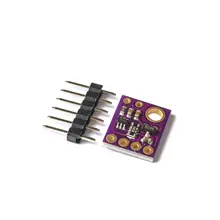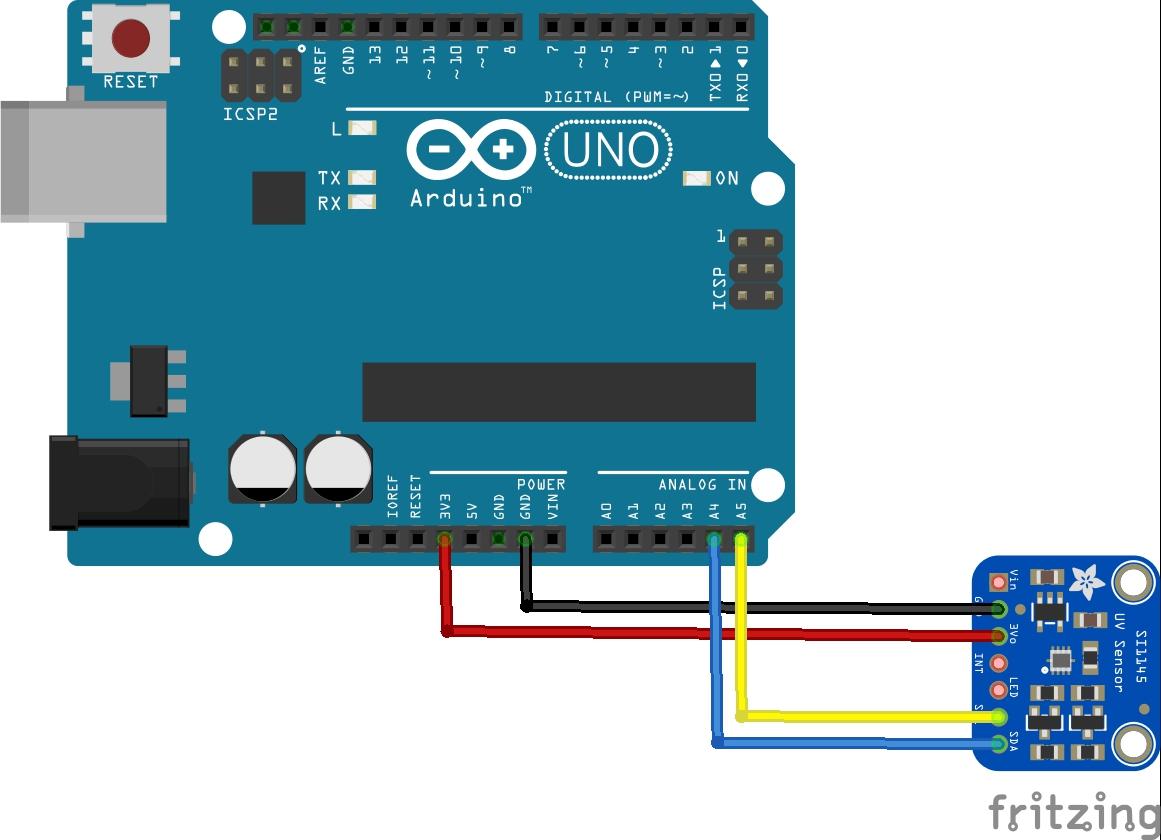Another sensor reaches the desk, this time it is a Si1145 sensor, we will connect it to an Arduino and test it out
First the sensor
The Si1145/46/47 is a low-power, reflectance-based, infrared proximity, ultraviolet (UV) index, and ambient light sensor with I2C digital interface and programmableevent interrupt output. This touchless sensor IC includes an analog-to-digital converter, integrated high-sensitivity visible and infrared photodiodes, digital signal processor, and one, two, or three integrated infrared LED drivers with fifteen selectable drive levels. The Si1145/46/47 offers excellent performance under a wide dynamic range and a variety of light sources including direct sunlight. The Si1145/46/47 can also work under dark glass covers.
The photodiode response and associated digital conversion circuitry provide excellent immunity to artificial light flicker noise and natural light flutter noise. With two or more LEDs, the Si1146/47 is capable of supporting multiple-axis proximity motion detection. The Si1145/46/47 devices are provided in a 10-lead 2×2 mm QFN package and are capable of operation from 1.71 to 3.6 V over the –40 to +85 °C temperature range.
Parts List
| name | Link |
| Arduino Uno | UNO R3 CH340G/ATmega328P, compatible for Arduino UNO |
| Si1145 breakout | SI1145 UV IR Visible Sensor I2C GY1145 Light Breakout Board Module |
| connecting wire | Free shipping Dupont line 120pcs 20cm male to male + male to female and female to female jumper wire |
Layout
Code
This example requires the Adafruit Si1145 library, you can add this via the library manager or download from https://github.com/adafruit/Adafruit_SI1145_Library
[codesyntax lang=”cpp”]
#include <Wire.h>
#include "Adafruit_SI1145.h"
Adafruit_SI1145 uv = Adafruit_SI1145();
void setup() {
Serial.begin(9600);
Serial.println("Adafruit SI1145 test");
if (! uv.begin()) {
Serial.println("Didn't find Si1145");
while (1);
}
Serial.println("OK!");
}
void loop() {
Serial.println("===================");
Serial.print("Vis: "); Serial.println(uv.readVisible());
Serial.print("IR: "); Serial.println(uv.readIR());
// Uncomment if you have an IR LED attached to LED pin!
//Serial.print("Prox: "); Serial.println(uv.readProx());
float UVindex = uv.readUV();
// the index is multiplied by 100 so to get the
// integer index, divide by 100!
UVindex /= 100.0;
Serial.print("UV: "); Serial.println(UVindex);
delay(1000);
}
[/codesyntax]
Output
Open the serial monitor window and you will see something like this
Vis: 261
IR: 293
UV: 0.02
===================
Vis: 261
IR: 295
UV: 0.02
===================
Vis: 261
IR: 263
UV: 0.02
===================
Link
https://www.silabs.com/documents/public/data-sheets/Si1145-46-47.pdf



